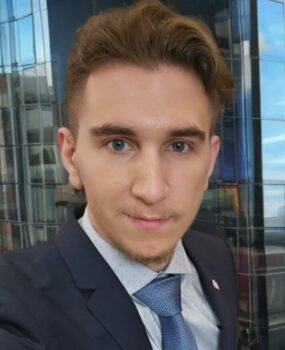About
As a passionate researcher in the field of artificial intelligence (AI) and its applications in medicine, I have been fortunate to work with the esteemed VGG (Vision and Graphics Group) research group since my time as a Bachelor’s student. Under the guidance of my supervisor, Ing. Lukáš Hudec, PhD., I developed an application for the annotation, detection, and classification of cilia for PCD (primary ciliary dyskinesia) diagnosis, which led to my first publication and ignited my research journey.
Continuing my work with medical images during my Master’s, I created a modified CycleGAN architecture, which allowed me to attend two conferences and publish two more papers. Expanding my research interests, I also delved into quantum chemistry and toxicology, contributing to a publication on phototoxicity prediction. By the time I decided to pursue my PhD, I had already accumulated an impressive track record of 3 conferences and 3 publications.
“My optimistic approach and ability to think outside the box have been instrumental in finding innovative solutions to challenging problems.”
As an official member of VGG during my PhD, I have been exploring the exciting realm of multimodal deep learning, working with both images and tabular patient data to discover novel ways of merging them together. My optimistic approach and ability to think outside the box have been instrumental in finding innovative solutions to challenging problems.
Alongside my PhD, I have embarked on a career as an AI consulting contractor, collaborating with a company in the USA. This opportunity has allowed me to expand my expertise in Natural Language Processing and Large Language Models while honing my professional skills.
With a wide range of interests in AI, I am committed to continuously learning and encouraging others to develop a foundational understanding of various aspects of AI. I firmly believe that a broad knowledge base can significantly benefit researchers in their pursuits and help them uncover unique solutions to complex problems.
Research
-
Journal of Imaging, volume 10, number 2, pages 32, year 2024, publisher MDPI
-
Toxicology in Vitro, volume 94, pages 105701, year 2024, publisher Pergamon
-
International Conference on Image Analysis and Processing, pages 27–38, year 2023, organization Springer Nature Switzerland Cham
-
International Conference on Computer Vision Systems, pages 403–411, year 2023, organization Springer Nature Switzerland
-
Diagnostics, volume 11, number 8, pages 1363, year 2021, publisher MDPI
